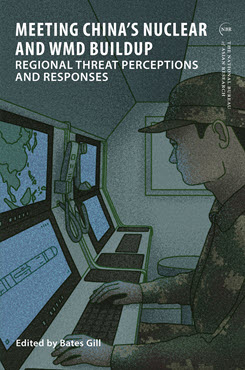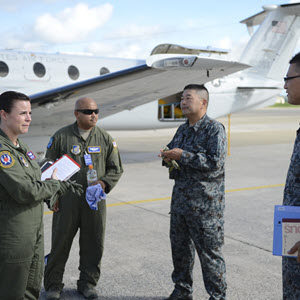Essay in NBR Special Report 109
China’s Nuclear Modernization and Taiwanese National Defense
Flexibility, Resilience, and Deterrence
This essay argues that the buildup and modernization by the People’s Republic of China (PRC) of its nuclear and WMD capabilities might be the most dangerous threat to Taiwan’s national defense.
EXECUTIVE SUMMARY
MAIN ARGUMENT
MAIN ARGUMENT
While the Taiwanese military is mainly focused on defending Taiwan against a conventional attack from the PRC, the PRC’s potential use of a nuclear weapon or other WMD should be seriously considered. Since Xi Jinping came to power, nuclear and WMD capabilities have become a greater part of the PRC’s military reforms. Taiwan should consider nuclear coercion not only due to the PRC’s increasing number of warheads but also because of the possibility for the tactical use of nuclear weapons. Given this growing threat, Taiwanese defense strategists should work with like-minded allies to develop countermeasures for a scenario in which the PRC uses nuclear weapons, thereby providing for the survivability and preparedness of troops and critical assets and improving the resilience of Taiwanese society.
POLICY IMPLICATIONS
- The U.S. could extend current U.S.-Taiwan military exchanges, including by sending more observers and advisers to support Taiwan’s reorganization of its armed forces and to strengthen the “mission command” military culture in the country. The focus should be on supporting reforms to rebuild Taiwan’s military into a more decentralized and flexible armed force, thereby enhancing survivability when facing a possible WMD attack.
- The U.S. could further support Taiwan by introducing more modern technologies to enhance command-and-control capabilities and communications. Such measures to make Taiwan’s military more flexible and mission command–oriented could make the tactical use of a nuclear weapon less attractive to PRC decision-makers.
- The U.S. and its allies and partners should consider a counter-coercion strategy in response to Chinese coercion efforts by developing a more comprehensive approach that gauges the PRC’s intentions of actually using a WMD. Once the democratic countries can precisely assess China’s intentions, it would then be much harder for the government to achieve its political goals via nuclear coercion.
Jyh-Shyang Sheu is an Assistant Research Fellow at the Division of Chinese Politics, Military and Warfighting Concepts at the Institute for National Defense and Security Research in Taipei, Taiwan.



